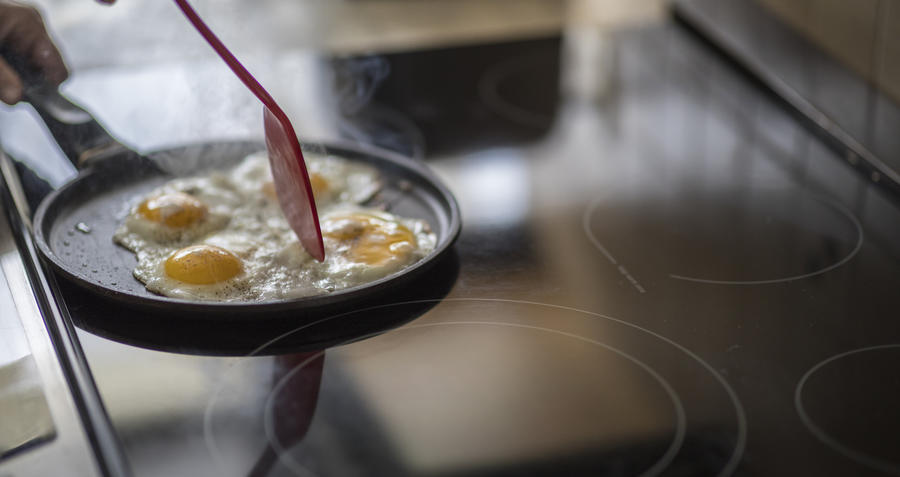You’ve probably already heard that induction cooktops are fast, reliable and cheaper to operate than gas stoves or conventional electric hotplates. That might sound too good to be true, but induction cooktops are backed by solid science. Once you understand how the technology works, it’s easy to decide whether an induction cooktop is right for you. So, whether you’re planning a kitchen renovation or building a new home from scratch, read on to learn exactly how you can benefit from an induction cooktop.
How induction cooktops work
With a conventional gas or electric cooktop, the heat is transferred (or conducted) to the pot or pan that’s sitting on top via a heating element. By contrast, an induction cooktop produces an electro-magnetic field on its glass surface that essentially turns the pot or pan into a heating element.
When using an induction cooktop, the stove itself does not get hot because no heat is conducted between the cooktop and the cookware – the electro-magnetism heats the cookware directly. This makes induction cooktops more efficient than traditional cooktops which rely on the transfer of heat from one object to another (a process that leads to some wasted energy).
What are the other benefits of induction cooktops?
Aside from being more energy efficient than traditional cooking methods, induction cooktops have several advantages:
- Unlike traditional electric heating elements that need to warm up, induction cooktops convey electro-magnetic energy to your pots and pans almost immediately, thereby saving you time;
- They’re safer because the cooktop itself does not get hot;
- They’re easy to clean because the surface is flat, and they don’t get hot so spills don’t get ‘baked on’ to the cooktop;
- Most switch off automatically when not covered by a pot or pan, saving you even more energy.
What are the drawbacks?
Induction cooktops aren’t always the best choice. Consider the following:
- They are more expensive to purchase than gas or electric stoves, so if you cook infrequently or are on a tight budget, they may not save you money;
- They require cookware with a ferrous bottom (cast iron, steel, stainless steel with an iron base). Glass, aluminium and copper cookware is not suitable.
Making a decision
There’s no doubt that induction cooktops offer significant benefits for regular cooks, the time-poor and those with safety concerns (such as kids in the kitchen). However, induction appliances cost more to purchase than traditional cooking equipment and don’t work with pots and pans made from certain popular materials. Be sure to weigh the pros and cons before making a decision.
Still not sure? Read more on choosing between gas and electric.




